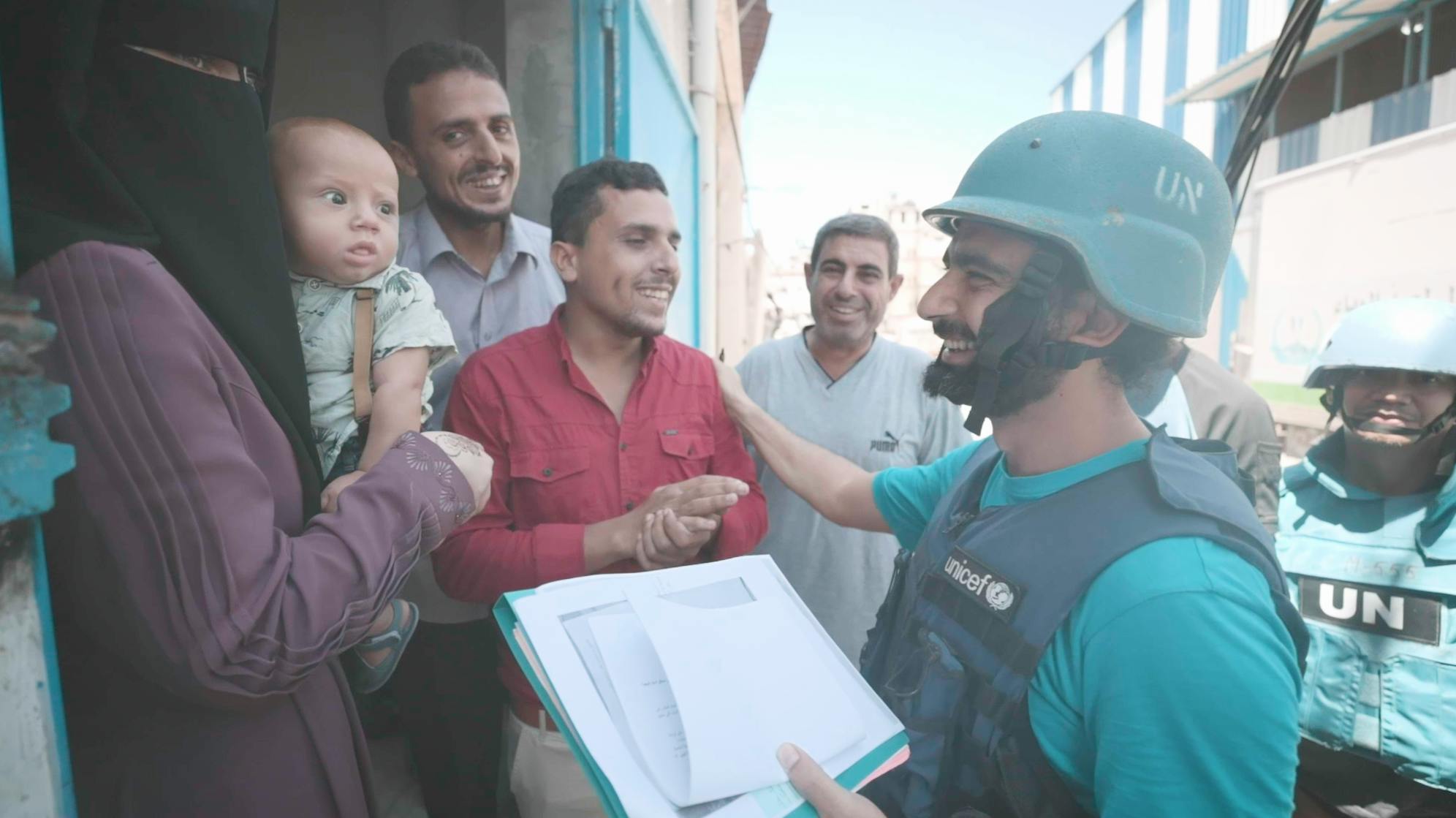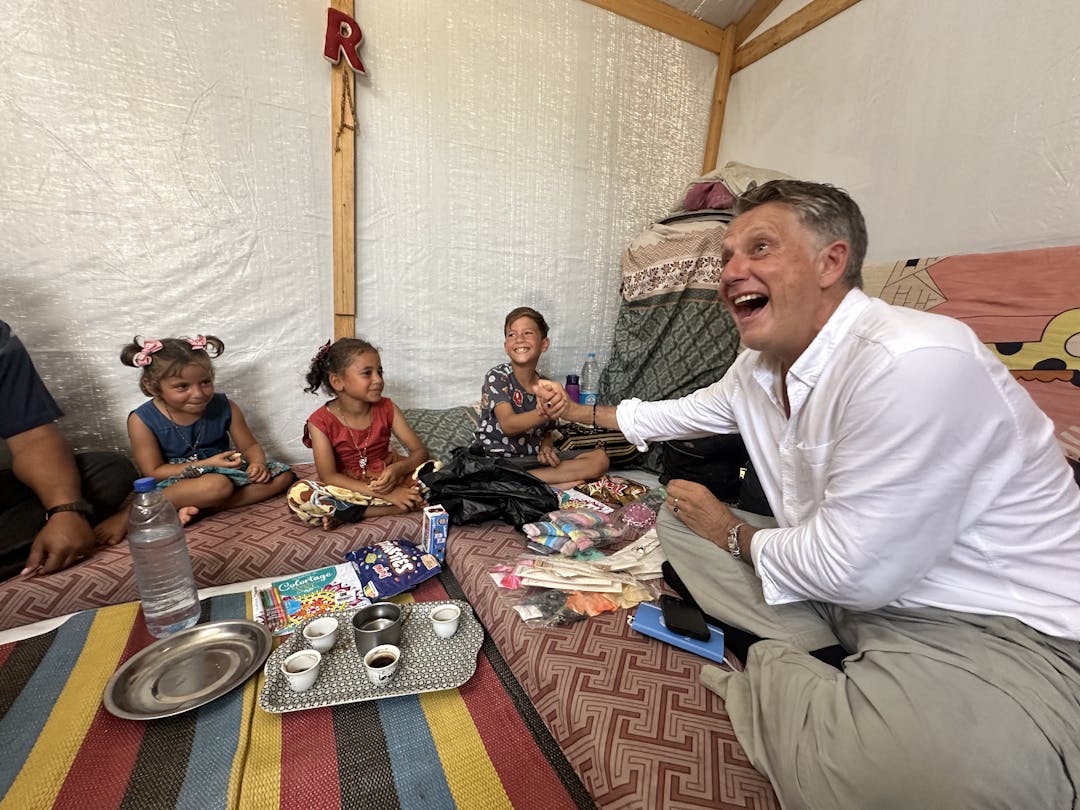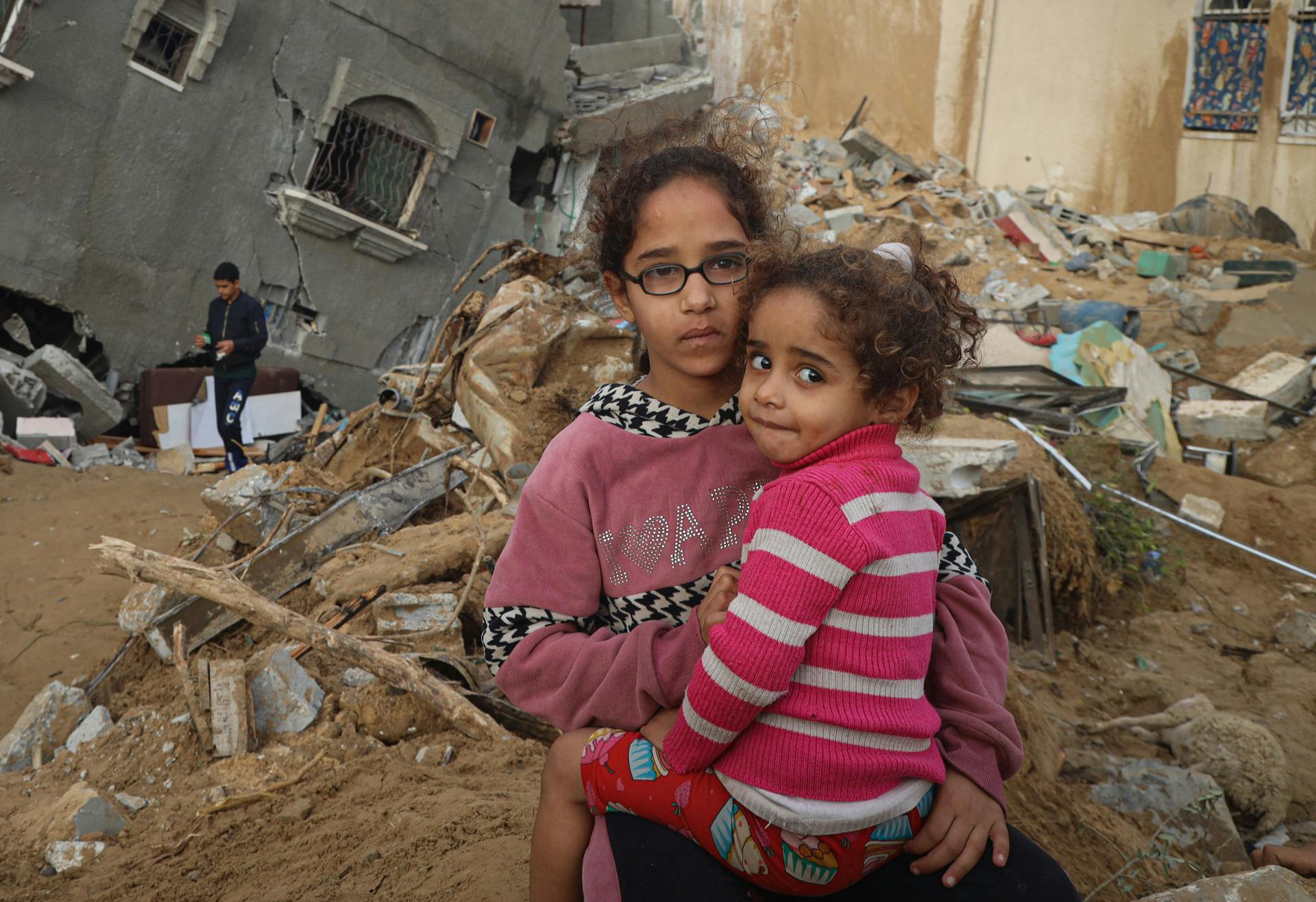
UNICEF whānau who've been in Gaza from the beginning
Home
Stories
UNICEF whānau who've been in Gaza from the beginning
“Always look for the helpers. You will always find people who are helping.” Beloved children's TV show host Fred Rogers popularised this quote in his 1983 book, Mister Rogers Talks with Parents. In the book he explains that his mother comforted him with stories about helpers after his distress at reading about disasters in newspapers and newsreels as a child.
But the world is a very different place now to what it was 40 years ago, where disasters are livestreamed on our phones, TVs and laptops 24/7. And tragically, helpers are caught up in the crossfire like never before. 2023 was the deadliest year on record for the helpers, when 280 aid workers were killed in 33 countries - a 137 percent increase on 2022. Between October 2023 and August 2024, more than 280 aid workers were killed in the Gaza Strip alone.
These are just a few of the stories of UNICEF’s helpers, who've been risking their safety and lives every single day for the last 12 months, all of whom have their own families and loved ones. UNICEF is urgently calling on all parties, to any conflict, to respect and protect humanitarian workers.
Salim Oweiss, UNICEF Spokesperson
Salim Oweis has been working for UNICEF throughout the conflict in a number of different roles. One of those has been reuniting children separated from their families. In August he shared some of what he has witnessed on the ground in Gaza, at the Palais De Nations in Geneva.
"I was shocked by the depth of suffering, destruction and widespread displacement in Gaza. The footage the world sees on television gives an important peek into the living hell people are enduring for over 10 months. What it does not fully show is how behind the crumbled buildings - whole neighborhoods, livelihoods and dreams have been levelled to the ground. The life of a child in Gaza, in month ten of this conflict, is not a life. We cannot say it enough – there is no safe place, and everything is running out – food, water, fuel, medicines. Everything.”
“When you walk through the mazes of makeshift shelters, you struggle to climb the sand they lay on and you smell the strong odour of sewage filling the paths around. You are struck by the many children hovering around asking one question “Mr. when will the war end?”

"Water and waste are a huge problem. In Deir al-Balah, where the bulk of displaced people have fled in recent months, the partially functioning sanitation system is estimated to be overloaded by seven times its capacity due to these massive waves of displacement to the area. Consequently, the decades old sewage network is mostly clogged, and leaking. Families urgently asked me for soap and hygiene supplies. They are using water and salt to clean their children or boiling water with lemons to try and treat skin rashes. They tell me doctors don’t have the capacity or medicines to treat them, with more serious medical cases arriving every hour and no supplies on the shelves. And so, the rashes spread.”
"There is also a serious lack of medicine for children with pre-existing conditions like cancer and congenital ailments. At Al-Aqsa hospital I met 10-year-old Abdel Rahman, who suffered a leg injury during an airstrike. His leg never healed, and after following up with doctors he was diagnosed with bone cancer. His mother Samar said to me with a broken voice: “I wish my child would die and not to be suffering as he is now – can you believe that I wish that now?”
"A child with a disease in the Gaza Strip has been handed a sentence to a slow death because he cannot receive the treatment he needs, and he is unlikely to survive long enough to make it out. Their only hope of survival is a ceasefire."
"The children of Gaza are still clinging to the belief that this day will come, and UNICEF shares this hope. Achieving a ceasefire is still possible, more necessary now than ever and way overdue, and everyone must do everything in their power to advocate for it,” Salim Oweis, UNICEF Spokesperson.
Mazen Khudair, Healthworker
In the heart of Khan Younis is Mazen Khudair, a dedicated head of the radiology department at Al Amal Hospital. For 27 years, he's led a tireless effort to bring medical devices to his department, including crucial equipment for detecting breast cancer. Through UNRWA he and his team have reached countless women coming from remote areas, providing them with vital screenings. Despite facing displacement and destruction during the conflict, Mazen remains steadfast in his commitment to serve all patients, regardless of affiliation. Now, amidst the rubble, his message echoes: the Palestinian people are on the verge of destruction, pleading for mercy and global attention to rebuild their shattered lives and healthcare infrastructure.
“My presence here from October 7 until the last moment was to serve our people. Our medical mission is to treat any sick person, whether from the Israeli army or any other party. We will provide them with the necessary treatment. I cried for the destruction of this place, and when I saw these destroyed devices, it broke my heart,” Mazen Khudair, Healthworker
James Elder, UNICEF Global Spokesperson
UNICEF Global Spokesperson, James Elder has become a household name over the last 12 months, covering the situation for kids in Gaza- and other places where children’s rights are being ignored. He has said that in his 20 years of working for UNICEF, he has never seen anything like the devastation caused to children in Gaza. The below reflections are from a BBC interview in June.
“There's barely a fully functioning hospital left in Gaza.. of homes, two-thirds of homes and buildings. This is a wasteland that I'm surrounded by. I can't begin to describe how much rubble you see. Destruction of the economy, destruction of agriculture, destruction of learning. So I think it's very clear that's what we've seen. And certainly there is nowhere safe. The safest place now is for someone who's had their home destroyed, who is now in a tent in 45 degree Celsius heat… quite often with a child who's very sick or with a loved one who's been killed."
"To give you one of a dozen stories in the last day, I was speaking to a colleague and I said, ‘how are you? I haven't seen you since, for a month, how's your family?’ And he simply said, ‘well, last week, my mother and my brother were killed when our home was bombed. And then two days later, my brother went back to the house to try and get some belongings. And it was bombed again’. These are not unique stories. This is the indiscriminate nature of what's gone on for eight months.”
James was recently interviewed on Stuff’s Newsable podcast, which you can listen to here
“There's been a record amount of action on the ground from aid agencies. I have to say, aid workers putting themselves on the front lines. And we've seen more aid workers killed in this conflict at any time since the advent of the United Nations. So more aid needs to come in, more funding needs to happen, less blockades by Israel as the occupying power, more facilitation. All these things can only really happen under the umbrella of a ceasefire," James Elder, UNICEF Spokesperson.

Fairooz Abu Warda, UNICEF Early Childhood Development Officer
Fairooz has been working in Jabalia in Northern Gaza Strip. Throughout the bombardment she wakes up every day committed to showing up for kids. "Returning to work is not just a decision," she says. "It's my duty as a humanitarian worker. I can't just stop. What keeps me going is knowing that people depend on us. We need to continue doing what we do, no matter how hard the situation, how tough the situation gets. Our work is not only about providing aid. It also brings hope.”
The helpers need our help too
Over the past 12 months we’ve shared countless stories of children and their families on the brink of survival. And we'll continue to do so until leaders around the world can guarantee a lasting ceasefire. In the meantime, our staff in Gaza and across the world will carry on doing what they have been, showing up and risking their lives to protect these kids and hundreds of thousands more. Children are innocent and these helpers are their heroes, making sure they survive. They all deserve a ceasefire, so that children can grow up in peace and our aid workers can get to work rebuilding what has been lost and destroyed. When the bombing stops, the work can begin. We will need all the helpers that we have to make this a reality for children.
